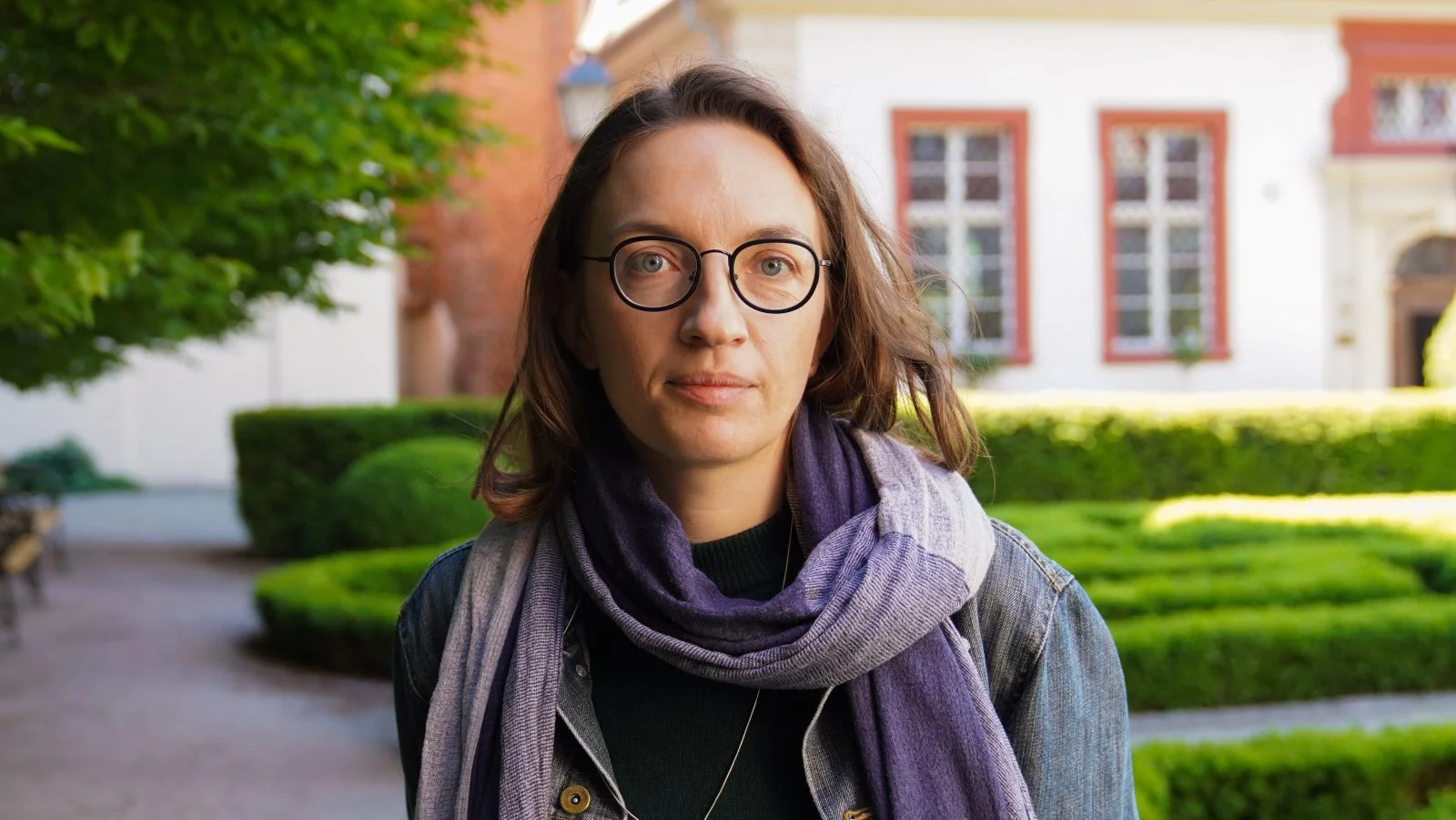
photo: Alina Metelytsia
An innovative approach to urban research as part of the Arqus project – interview with dr Katarzyna Kajdanek
Another year at the University of Wrocław, as part of the ARQUS European University Alliance, has begun. Thanks to these projects, initiatives constantly come to life, crossing not only national borders, but also redefining academic life. In the interview with dr Katarzyna Kajdanek, sociologist and ARQUS project participant, we can take a closer look at an international collaboration in urban research and reflect on academic culture.
What ARQUS activities do you participate in?
Firstly, I am an active member of a Community of Practice (CoP) called ExNUrb, which brings together scholars from different ARQUS Universities that focus on different urban studies in various social-proxemic and political-economic contexts. This community of practitioners aims at strengthening the collaboration between professionals that takes place through individual scholarly interactions in the field of urban studies. Our long-term goal is to develop organically integrated teaching modules. Those modules would also include integrated academic activities conducted by students from different ARQUS Universities. As part of this collaboration, the universities of Granada, Maynooth, Leipzig, Padua, Vilnius and Wrocław are participating. Last year, we co-hosted the QQure workshop in Vilnius, which was designed as a creative and intellectually stimulating space for scholars to unwind from academic pressure. Regardless of whether the participants will include safety walking to their own research, joint exploration of city spheres serves as a base to build deeper business and personal relationships. During this workshop, we were learning how to teach about methodology in urban research with safety walks as a research method.
My second noteworthy activity is being a part of “Fiasco Fest goes ARQUS” project which was funded by the ARQUS Innovation Fund. The project has been implemented since October 2024 and will continue until September 2026. “Fiasco Fest” creates space for scholars to speak openly about their difficulties and failures. The initiative, developed 3 years ago by Sabrina Bergner and Johanna Stadbauer from the University of Graz, became successful and is currently being implemented by the different ARQUS Universities. 5 universities are part of this project: Graz, Lyon 1, Maynooth, Padova and Wrocław.
Please describe your role in those activities
In the case of Community of Practice ExNUrb, I am fulfilling the role of an active member, supporting our leader, Tad Šarūnas from the University of Vilnius, in organising various initiatives, including the already mentioned QQure workshop. Nonetheless, my role does not end with organizational support. Another CoP meeting will take place this year’s Spring in Wroclaw, where I will be co-hosting. We are planning a working meeting of the group – a workshop titled VISURB, for which we have received funding from the ARQUS Innovation Fund.
In the context of the project “Fiasto Fest goes ARQUS”, my role is more personal and transformational. In May this year, I took part in the training course: or failure facilitators in the academic context at Maynooth University in Ireland. This experience was important for me on two levels. Personally, because I struggle with abandonment, failures and failed projects in academic work. Structurally, this workshop helped me understand how failure is an inherent part of academic life and how we can help one another in turning it into a source of strength rather than weakness.
Can you assess whether joining ARQUS influences your academic work?
Taking part in ARQUS deeply and multidimensionally influences my work. Above all, I met new people, which over the course of several years became my close academic friends. This networking goes far beyond the formal frameworks of the programme – we visit each other through Erasmus+ and we are conducting joint projects, especially publications that are not part of the ARQUS.
On the other hand, taking part in a workshop about failures made me aware of the additional aspects of functioning in academia and the university, in particular. Now, I have a better understanding of systemic conditions that affect the well-being and effectiveness of scholars, which enables me to work consciously on academic culture improvement.
Moreover, methodologies and approaches learned during ARQUS, particularly those related to urban studies and visual methods, will enhance my academic and didactic skills. International collaboration in this form enables to compare different academic traditions and develop innovative solutions.
How did you learn about ARQUS?
I learned about ARQUS thanks to the fact that I was close with the International Office of the University of Wrocław. As an Erasmus+ + coordinator in my Institute of Sociology, I received swift information about ARQUS. Currently, I visit the alliance’s website on my own account, and I am trying to be up to date with news, opportunities and new initiatives. I am treating this as a part of my professional responsibility but also as a personal interest in the development of international academic cooperation.
What is more, I try to disseminate information about ARQUS opportunities, particularly in my institute, where as Vice-Director of the Institute of Sociology, I am responsible for international collaboration. I think that one of my roles is to serve as a bridge between the opportunities offered by the alliance and the needs and interests of the local academic community. It appears to me that I have certain achievements in this area – PhD candidates in sociology took part in Career Week organised by ARQUS in Padua this year, our master’s degree students participated in the intensive programmes organised by ARQUS Universities. Moreover, our scholars visited e.g. Leipzig and Padua through the Excellence Initiative – Research University (IDUB). Of course, I hope for more such activities in the coming years.
Added by Agata Mitek, 3 October, 2025
Translated by Amelia Kłaniecka (student of English Studies at the University of Wrocław) under the supervision of Maria Kozan as part of the translation practice.



